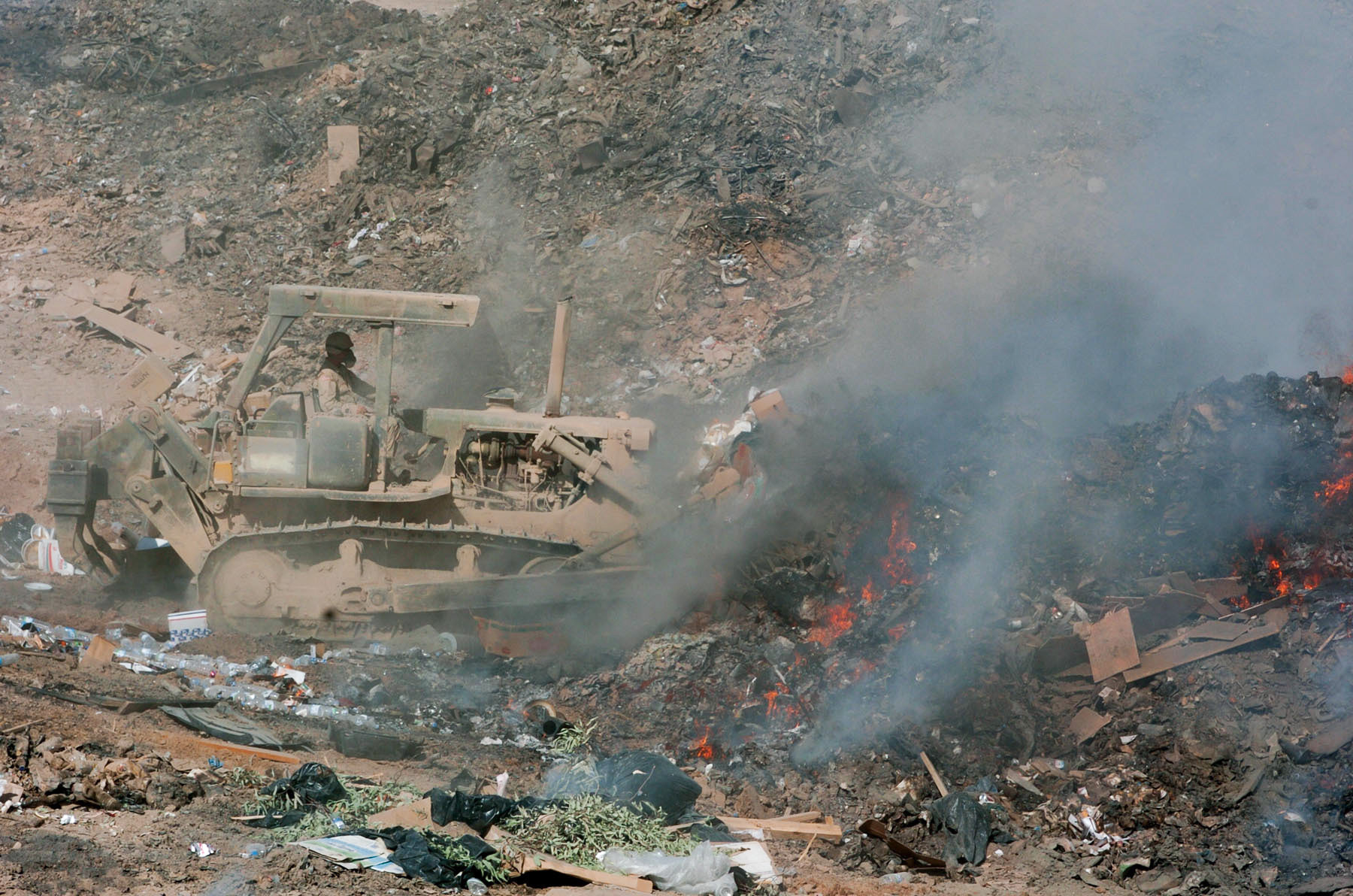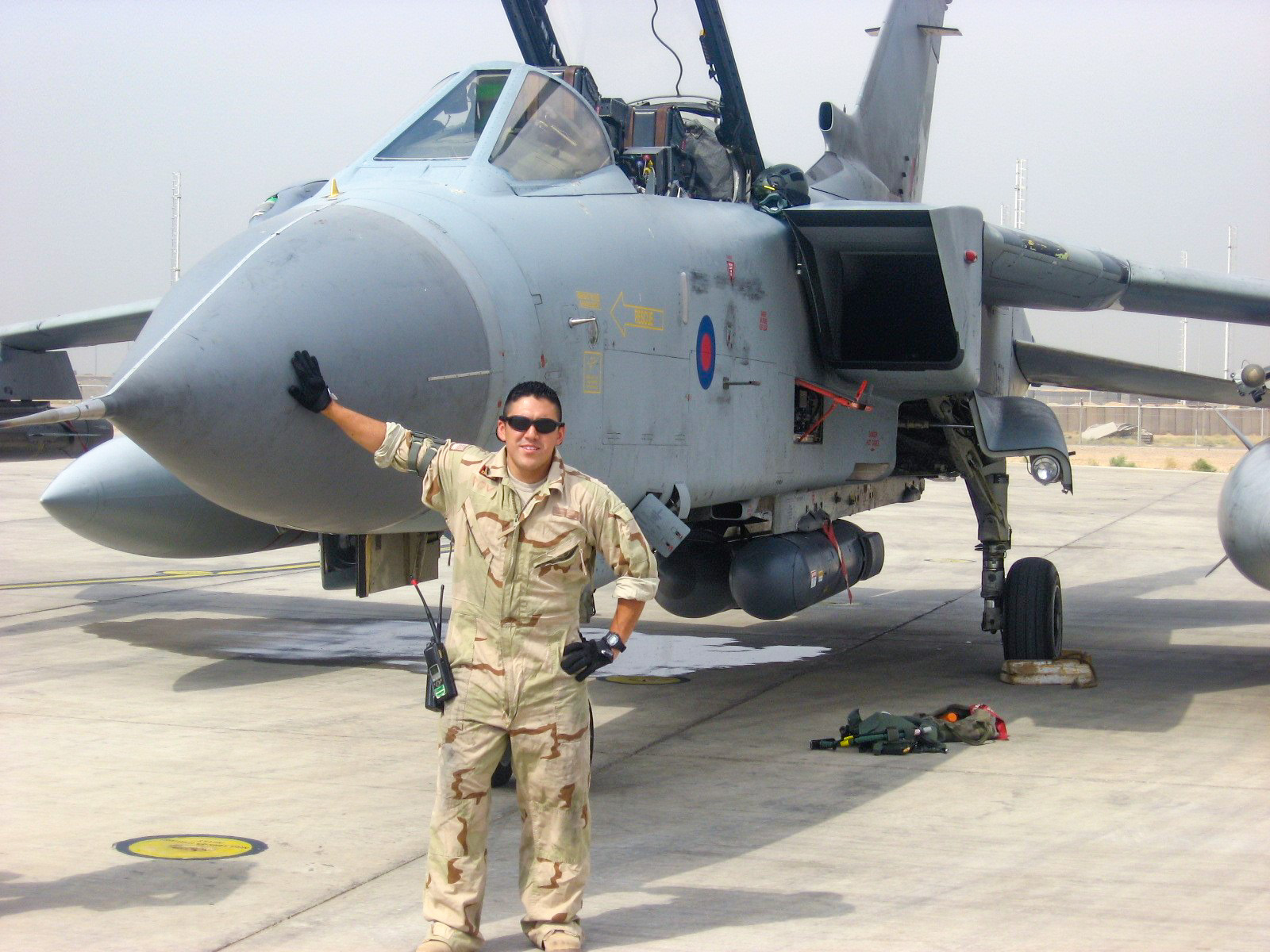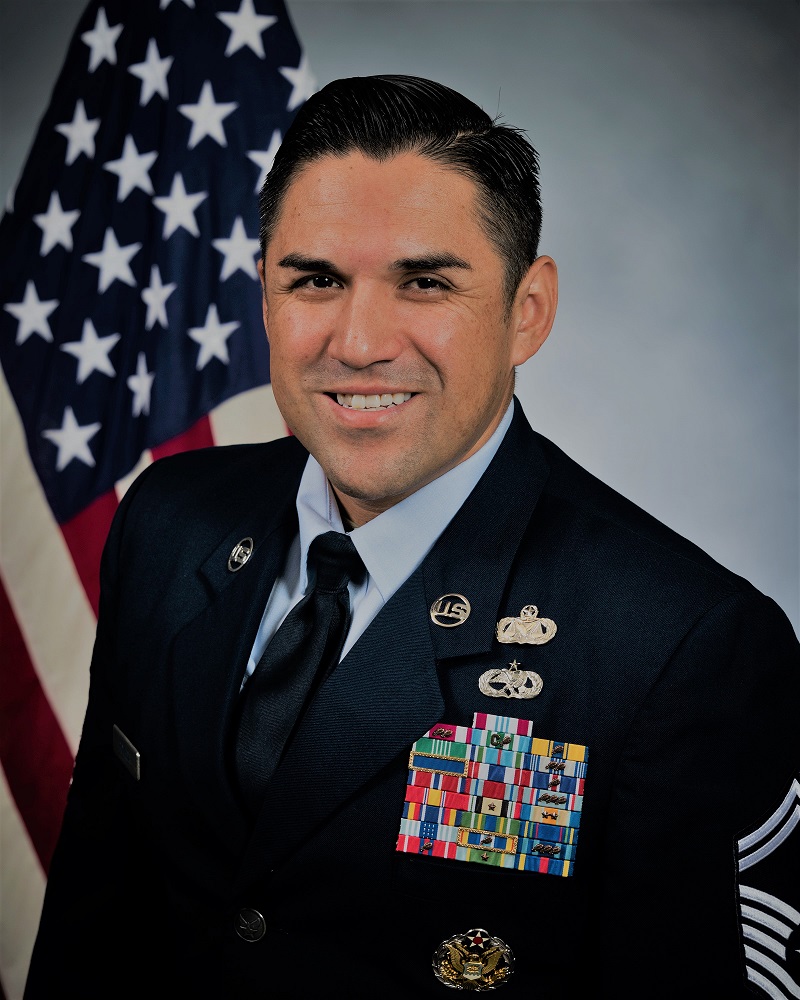A Perspective
The last 19 years of my military career have given me numerous experiences. Only a few of those experiences come close to the times I deployed in support of operations overseas. I enlisted in the U.S. Military to be part of a winning team. Having a front-row seat, as history has been written, has been the highlight of my service. For me, personal job satisfaction comes from fighting a defined enemy.
Legal professionals impact the operational mission.
We must be realistic. Many of us feel distanced from the kinetic fight because much of our profession revolves around military justice or civil law. Although we are far removed from the front lines of conflict, our jobs are crucial to the warfighter. Legal professionals impact the operational mission. Every contract, court-martial, or civilian complaint affects the targets we neutralize, the intelligence collected, or the rocket launched into orbit.
We are Airmen first. As such, our duty is to the profession of arms. The National Military Strategy tells us to “build and sustain a warfighting advantage.”[1] Fifth-generation warfare is here. We are in an era that sees less and less kinetic effects across the spectrum of conflict. As legal professionals, we have two options; adapt now or lose later. Additionally, we must remember the Warrior Ethos: we are a legal violence applicator in defense of our Constitution and the advancement of American national interests. This fact is foundational to who we are as a military and how we as Airmen view ourselves regardless of career field. Our strategic documents highlight a rapidly changing global balance. The People’s Republic of China and other actors have challenged the United States’ global position and “harbor the intention and, increasingly, the capacity to reshape the international order in favor of one that tilts the global playing field to its benefit ….”[2] We have a duty to respond and help the nation secure a “free, open, prosperous, and secure international order”[3] and every legal professional is needed in the fight.
I am a self-proclaimed “GWOT baby” (Global War on Terrorism). Throughout my career, our Armed Forces have been involved in worldwide combat operations against non-state actors and terrorists. I deployed four times to Iraq and once to Central America. As an F-16 Crew Chief, I served twice at Balad Air Base, Iraq, in support of Operation IRAQI FREEDOM. As a paralegal, I served a tour in Honduras as the Law Office Noncommissioned Officer in Charge (NCOIC) for Joint Task Force Bravo (JTFB). Following my assignment to the Air Force Legal Operations Agency (AFLOA), I was privileged to serve in a special missions unit alongside some great patriots. While in the program, I deployed as an Operations noncommissioned officer (NCO) supporting Operation INHERENT RESOLVE in 2019. In 2021, I deployed again as a Senior Enlisted Advisor (SEA) of a Joint Special Operations Air Detachment (JSOAD) supporting a joint task force. I reflect on my deployment experiences through the lens of an Airman first and a legal professional second.
Balad, Iraq, Operation IRAQI FREEDOM (Part 1 – 2005/2006)
After spending two days in Spain because of a cantankerous C-5, a six-hour flight landed us in theater at 2300 hours on 31 December 2005. As we stepped off the aircraft, the air was cold, crisp, and filled with the acrid stench of a burn pit that eventually landed anyone deploying to those areas of responsibility (AOR) in the Department of Veteran’s Affairs Burn Pit Registry. We immediately received a briefing on what to do and not do. I had been issued an old Vietnam War-style "flak jacket" and netting gear Hill Air Force Base decided to issue us, a noticeable gap in communication with the deployed elements. The next day, we were given adequate gear.

Balad, Iraq - Bulldozer used to manuever refuse into the burn pit. (Photo Courtesy 28th Public Affairs Detachment)
I was part of the advanced operational node (ADVON). An ADVON is a team of unit members that arrive at a deployed location first to prepare the sites for incoming aircraft. After nearly four hours of in-processing, we received our rooms which we shared with about five Airmen from the unit currently in country. We bunked ten to twelve Airmen in that tiny space. In the early GWOT days, the Air Force deployed mainly in Air Expeditionary Force (AEF) “buckets.” This meant a large group of individuals would rotate in and out of the AOR about every four months. We would have to share living spaces with many individuals with different sleeping schedules and short tempers.
On our first night of sleep, a rocket welcomed us in-country. It slammed approximately 50 yards from our trailer. It was tough to fall asleep after that. The rocket impacted directly on a soldier’s quarters. Fortunately, he was not home. This became a regular occurrence in Balad. Sometimes, we would hear of a rocket or mortar wounding folks, then the announcement requesting blood would go off across the camp.
We also took part in more ramp ceremonies to send our fallen home than we would care to count ….
We also took part in more ramp ceremonies to send our fallen home than we would care to count …. During a ramp ceremony, the flag-draped aluminum coffins are loaded onto an aircraft while unit members line both sides of the ramp at the aft of the aircraft. While the coffins are loaded a salute is rendered. After some brief words by a chaplain, everyone, with the exception of the members of the deceaseds’ units, does a left face and marches away from the aircraft.
I was proud to be part of the 4th Aircraft Maintenance Unit (4 AMU). In that rotation, the 4 AMU and 4th Fighter Squadron were directly involved in eliminating numerous targets. We were a proud group. Our return home was honorable.
Balad, Iraq, Operation IRAQI FREEDOM (Part 2 – 2007/2008)
A year and some change passed, and the 4 AMU was on deck to deploy to Balad again. I was more hesitant to deploy this time because I was now married and wanted to start a family. The AMU deployed like last time, but three of us in the shop were tasked to deploy as Transient Alert Crew Chiefs. I was on my way to Balad again. Since my duties would be different, I looked forward to the deployment.
Deployment prep was much of the same as before. One week of local “combat skills” training and another round through the gas chamber for gas mask practice. Then, it was off to Iraq on a chartered rotator. While awaiting a flight in-country at Al-Udeid Air Base, I was on the phone with my wife, who told me she was pregnant with our daughter. At the time, service members were allowed two 15-minute phone calls per week at the morale trailer, as this was before camp Wi-Fi and the proliferation of consistent satellite communications. To call stateside, you would dial an operator (located in then-Peterson Air Force Base, Colorado) who would connect you to the desired number you wanted to call. At 15 minutes, the call would drop. You could call more often if you worked in an office with a phone. However, these calls were also monitored for time.
This second tour of Balad was eventful. As a Transient Alert Crew Chief, I drove the “follow me” truck. We managed required maintenance and services for in and outbound aircraft. The team consisted of fighter and cargo aircraft maintainers. On several occasions, fighter aircraft from other bases diverted to Balad on “bingo” fuel. Bingo fuel is a military slang for the minimum amount fuel you must have on board to complete a flight from one point to another. One afternoon, a British Tornado (fighter jet) landed and required gas. The pilot climbed out of the plane and said, “Cheers, mate! How're things in sunny Behlehd?” While the very curious Expeditionary Maintenance Group Commander watched, my teammate and I gave it the good ole “CCAF try” (Community College of the Air Force). (I did not have a college degree at the time, so I could not give it a college try). We did not know what we were doing. The pilot handed us a very worn “how to” card. We found the refueling steps written in what seemed like Elizabethan English. We began fueling the aircraft, and many alarms in the cockpit went off. We pretended like it was all normal and part of the show. The pilot did not know better, and the Group Commander was not paying attention. Typically, American fighter aircraft have an automatic shutoff valve when refueling—the same concept as the gas pump at a gas station. The British Tornado did not seem to have this automatic shutoff feature, but more likely, we did not know how to engage it. We realized the aircraft was full when another alarm went off in the cockpit, and some JP-8 aircraft fuel spilled on the ground. Fortunately, it was not so substantial to make it a hazmat event. We got the aircraft fueled and running—another asset off the ground to eliminate threats.

Sergeant Poveda with the British Tornado. (Photo Courtesy of Senior Master Sergeant Amed Poveda)
Other events marked that deployment, such as mortar rounds hitting near our ramp, the oversized bugs crawling on our desks, or the insane amounts of dust. Dust was everywhere, and the dust storms created terrible flying and driving conditions. Going home was bittersweet as the team forged great friendships, and the sense of mission accomplishment was through the roof, and as a bonus we met Kid Rock and Robin Williams during a USO trip.
Soto Cano Air Base, Honduras, JTF Bravo (2016/2017)
In 2010, I retrained from aircraft maintenance to the paralegal career field. Several years later, I was the deployment manager for AFLOA. In that capacity, I often communicated with our professional development directorate. My turn to deploy was coming up, and then–Major Jay Jackson called me and said, “AP! What are you thinking for a deployment?” My reply was simple, “Sir, send me to a FOB (forward operating base) in Afghanistan or somewhere I can use my language skills.” I wanted to make a difference in the U.S. Southern Command Area of Responsibility (AOR) or join the fight in Afghanistan. A few days later, I was tasked to deploy to support Joint Task Force Bravo (JTFB) in Honduras.
As the NCOIC of the JTFB Legal Office, I was charged with managing and administrating the office workload. The team consisted of an Army captain and Mrs. Rita. Mrs. Rita was a local Honduran national who assisted the office with legal matters affecting U.S. service members. Additionally, Mrs. Rita is the continuity of the JTFB legal office. Any paralegal deployed to Soto Cano knows Mrs. Rita’s immense impact on the Joint Task Force’s legal operations.
Working for the Army equipped me with the capability to communicate in a dynamic and joint environment.
The assignment to JTFB provided me with a “Joint Operations 101” experience. Working for the Army equipped me with the capability to communicate in a dynamic and joint environment. I learned how a sister service administered military justice and conducted investigations. Additionally, I participated in events essential to my professional development as an NCO. The JTFB team established a trainer course for Honduran NCOs. We had the privilege of training the Honduran Army, Navy, and Air Force senior enlisted leaders. Finally, this deployment cemented in me the vital role relationships play in the mission of the legal office.
Joint Task Force, Operation INHERENT RESOLVE (2019)
In 2017 I was selected to fill the unit’s law office superintendent role. While assigned to the unit, I volunteered and was selected to deploy as an Operations NCO. My legal background was essential as the team encountered issues that could adversely affect the mission and our mission commander’s flexibility in the battlespace. It was an opportunity to expand my mindset from a paralegal capacity to an operational capacity.
This trip opened my aperture to view things from a true operational lens. Managing logistics and taking part in mission planning was unique. During this tour, the team accomplished many great things. In 60 days, our small team of approximately 20 Airmen moved 59,000 pounds of cargo, executed 120 missions, and played a substantial role in the nation’s most vital tasks.
Don’t just be “legal.” Be a unit member. You will quickly realize that you are not far removed from the fight.
Joint Task Force, Operation INHERENT RESOLVE (2021/2022)
As the Global War on Terror seemed to slow down, so did the accompanying deployments to those locations. I was selected as the SEA for a JSOAD. The team consisted of 12 units, 600 personnel, an array of intelligence, surveillance and reconnaissance, mobility, and strike assets.
In this position, I learned the true impact of caring for people. Organizational leaders will often have the privilege of taking credit for the work their subordinates carry out. Thus, it is crucial to consistently point the finger of success back down to where the hard work was accomplished. Our people are our most vital asset. If we fail to care for them, the mission will falter. As the JSOAD SEA, my commander and I knew the organization’s success was attributed to the work of the men and women of the attached and subordinate units. At headquarters, the staff made it happen.
Once again, having an operational mindset was critical. Our JTF had a JAG (judge advocate), and I used them often. Leading at the operational level is undoubtedly unique. However, leading at the operational level in an organization with President and Secretary of Defense-directed missions where the members are hyper-empowered to accomplish one common goal was an absolute treat. I will forever be proud of the accomplishments of the team.
Parting Thoughts
Every day, I carry an American flag in my backpack. I found it on my first deployment one day while I was waiting for a jet to come back. It was dirty and torn, shoved behind the door hinges of one of Saddam Hussein’s old aircraft shelters. I have carried it for the last 19 years. It has been with me on every deployment, assignment, and temporary duty assignments (TDYs). I carry it as a reminder of duty to my God, my family, and my country. I encourage you carry something with you that reminds you of your devotion to this great nation and the wingmen to your left and your right. I encourage you to become involved with your base’s mission and your heritage as a member of that unit. Don’t just be “legal.” Be a unit member. You will quickly realize that you are not far removed from the fight. We go together!
About the Author

Senior Master Sergeant Amed Poveda, USAF
A.A.S., Aviation Maintenance Technology, Community College of the Air Force, Maxwell Air Force Base Gunter Annex, Alabama; A.A.S., Paralegal Studies, Community College of the Air Force, Maxwell Air Force Base Gunter Annex, Alabama; Inter-American Noncommissioned Officer Academy, Bogotá, Colombia; B.S., Liberty University, Lynchburg, Virginia) serves as an Instructor Supervisor, The Judge Advocate General’s School, Maxwell Air Force Base, Alabama.
Edited by: Major Allison K.W. Johnson (Editor-in-Chief), Major Victoria H. Clarke and Major Andrew H. Woodbury
Layout by: Thomasa Huffstutler
Endnotes